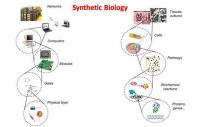-
Bomb detectors fraudster ordered to pay £1.2 million
Gary Bolton, a convicted fraudster who made millions selling fake bomb detectors around the world, has been ordered by a court to pay more than £1 million. In August 2013 Bolton, 49, from Chatham in Kent, was sentenced to seven years in jail for the sale of more than 1,000 useless detectors that he claimed could track down bombs, drugs, ivory, and money. Bolton was one of several defendants convicted for their part in fake bomb detector scams. In 2013, James McCormick, a British businessman, was convicted of having made millions in profits from selling fake bomb detectors to Iraq, Georgia, and several other countries.
-
-
Recovering rare earth materials from electric and hybrid vehicle motors
China currently supplies about 97 percent of rare earth materials used in manufacturing around the world. In an effort to help develop a sustainable domestic supply of rare earth elements and lessen the U.S. dependence on China for materials that are vital to the production of electronics, wind turbines, and many other technologies, researchers have developed a method of extracting rare earths from the drive units and motors of discarded electric and hybrid cars.
-
-
Cybersecurity company licenses ORNL’s Data Diode
Data Diode, developed by ORNL’s researchers, uses a defense-in-depth computer network strategy to create an environment in which an organization’s approved users can work freely inside an enclave of protected data but restricts file transfers outside the network. Lock Data Solutions has licensed a technology from ORNL. The technology is designed to protect a company’s data from internal and external threats.
-
-
DHS recruits Silicon Valley entrepreneurs to develop first-response technology
DHS wants better technology for first responders — police, firefighters, and EMTs — but rather than pushing for innovation from within the massive corporations that already provide technology to government agencies, the DHS has come to Silicon Valley to tap the entrepreneurial ecosystem of northern California. Giant technology firms have resources of large scale manufacturing and distribution, but there is one crucial difference. Technology startups are much more nimble, and can shift their development much faster than the huge corporations can.
-
-
HHS in strategic alliance to accelerate new antibiotic development
Multiple drugs to combat bioterrorism threats and other life-threatening bacterial infections will be developed under a public-private partnership agreement between the U.S. Department of Health and Human Services’ Office of the Assistant Secretary for Preparedness and Response (APSR) and AstraZeneca, a global biopharmaceutical company. The partnership will also stimulates pipeline of drugs to treat multi-drug resistant bacterial infections. CDC has estimated that in the U.S. antibiotic-resistant bacteria are responsible for two million infections and 23,000 deaths annually with an estimated annual economic burden of $35 billion on the healthcare system.
-
-
A first: Anti-fraud system to use existing credit card readers

From large-scale data breaches such as the 2013 Target case to local schemes that use skimming devices to steal data at the gas pump, credit card fraud is becoming commonplace. Because existing magnetic card readers use plain text to store confidential information, they are vulnerable to an untrusted card reader or skimming device. Analysts estimate that this vulnerability is adding up to $8 billion in incurred losses per year in the United States. For the first time, researchers have developed an inexpensive, secure method to prevent mass credit card fraud using existing magnetic card readers.
-
-
Former peanut company owner to jail for 28 years for fatal 2009 salmonella outbreak
In a rare instance of a prison sentence in a food contamination case, Stewart Parnell, the former owner of Peanut Corporation of America, was sentenced to twenty-eight years in prison for his role in a 2009 salmonella outbreak which killed nine people and sickened hundreds. Parnell, 61, who once managed the Peanut Corporation of America, and his brother, Michael Parnell, who was a food broker for the company, were convicted on Monday on federal conspiracy charges for knowingly shipping salmonella-tainted peanuts to customers.
-
-
Improving cybersecurity, reducing online theft
NIST the other day announced it will award nearly $3.7 million for three pilot projects designed to make online transactions more secure and privacy-enhancing for healthcare, government services, transportation, and the Internet of Things. The three recipients of the National Strategy for Trusted Identities in Cyberspace (NSTIC) grants will pilot solutions aimed at reducing tax refund theft, improving the security of medical information and providing secure online data storage.
-
-
U.S. defense agencies dominate federal synthetic biology research

A new analysis finds the Defense Department and its Defense Advanced Research Projects Agency (DARPA) fund much of the U.S. government’s research in synthetic biology, with less than 1 percent of total federal funding going to risk research. Between 2008 and 2014, the United States invested approximately $820 million dollars in synthetic biology research. In that time period, the Defense Department became a key funder of synthetic biology research. DARPA’s investments, for example, increased from near zero in 2010 to more than $100 million in 2014 — more than three times the amount spent by the National Science Foundation (NSF).
-
-
Rather food versus fuel, think in terms of both food and fuel

Whether you have taken a side or a backseat in the discussion, the “food versus fuel” debate affects us all. Some say growing more biofuel crops today will decrease greenhouse gas emissions, but will make it harder to produce food tomorrow, which has prevented the United States from maximizing the potential of environmentally beneficial biofuels. Scientists argue that farmers can sustainably, and affordably, meet humanity’s growing demand for food and fuel.
-
-
Beyond data theft: Next phase of cyber intrusions will include destruction, manipulation of data
James Clapper, director of U.S. intelligence, and other senior intelligence officers, have warned Congress that the next phase of escalating online data theft will likely involve the manipulation of digital information. Clapper on Wednesday told lawmakers on the House Intelligence Committee that a “cyber Armageddon,” in which a digitally triggered damage to physical infrastructure results in a series of catastrophic events, is less likely than “cyber operations that will change or manipulate data.” Leaders of the U.S. intelligence community told lawmakers that the manipulation or destruction of data would undermine confidence in data stored on or accessible through U.S. networks, engendering an uncertainty which could jeopardize U.S. military situational awareness and undermine business activity.
-
-
Securing and protecting the emerging Internet of Things

The digital world once existed largely in non-material form. But with the rise of connected homes, smart grids and autonomous vehicles, the cyber and the physical are merging in new and exciting ways. These hybrid forms are often called cyber-physical systems (CPS), and are giving rise to a new Internet of Things. National Science Foundation and Intel Corporation team to improve the security and privacy of computing systems that interact with the physical world using a new cooperative research model.
-
-
2015 drought costs for California agriculture: Loss of $1.84 billion, 10,100 jobs

The drought is tightening its grip on California agriculture, squeezing about 30 percent more workers and cropland out of production than in 2014, according to the latest drought impact report. In 2015, the state’s agricultural economy will lose about $1.84 billion and 10,100 seasonal jobs because of the drought, the report estimated, with the Central Valley hardest hit. The heavy reliance on groundwater comes at ever-increasing energy costs as farmers pump deeper and drill more wells. Some of the heavy pumping is in basins already in severe overdraft — where groundwater use greatly exceeds replenishment of aquifers — inviting further land subsidence, water quality problems, and diminishing reserves needed for future droughts.
-
-
Apple's encryption prevents it from complying with U.S. court order
Apple said it could not comply with a court order to hand over texts sent using iMessage between two iPhones because the company’s encryption system makes it impossible to do so. The Justice Department persuaded the court to issue the order to facilitate an investigation involving guns and drugs. Legal experts say this is the first known direct face-off between the U.S. government and Apple over encryption. The FBI contends that such encryption puts the American public at risk because it makes it harder, if not impossible, to track and catch terrorists, pedophiles, and other criminals.
-
-
Strategic alliance to deliver behavioral analysis cybersecurity to market
Ernst & Young LLP and Los Alamos National Laboratory have formed a strategic alliance to deliver what they describe as some of the most advanced behavioral cybersecurity tools available to the commercial market. The alliance comes at a watershed moment when increasingly sophisticated cyberattacks are inflicting significant economic, social, and even political damage to U.S. organizations. The tools developed by Los Alamos and delivered to the private sector by Ernst & Young LLP can help counter these threats by detecting them before they do deep and lasting damage.
-
More headlines
The long view
Need for National Information Clearinghouse for Cybercrime Data, Categorization of Cybercrimes: Report
There is an acute need for the U.S. to address its lack of overall governance and coordination of cybercrime statistics. A new report recommends that relevant federal agencies create or designate a national information clearinghouse to draw information from multiple sources of cybercrime data and establish connections to assist in criminal investigations.
Trying to “Bring Back” Manufacturing Jobs Is a Fool’s Errand
Advocates of recent populist policies like to focus on the supposed demise of manufacturing that occurred after the 1970s, but that focus is misleading. The populists’ bleak economic narrative ignores the truth that the service sector has always been a major driver of America’s success, for decades, even more so than manufacturing. Trying to “bring back” manufacturing jobs, through harmful tariffs or other industrial policies, is destined to end badly for Americans. It makes about as much sense as trying to “bring back” all those farm jobs we had before the 1870s.
The Potential Impact of Seabed Mining on Critical Mineral Supply Chains and Global Geopolitics
The potential emergence of a seabed mining industry has important ramifications for the diversification of critical mineral supply chains, revenues for developing nations with substantial terrestrial mining sectors, and global geopolitics.
